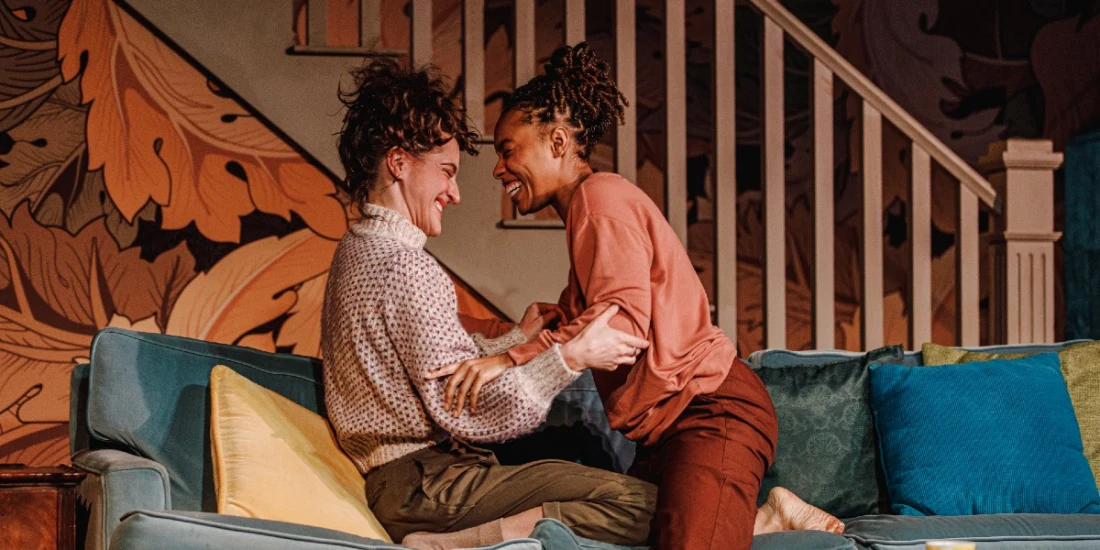'Daphne' review — examining how toxic relationships take root
Read our review of Daphne, Renae Simone Jarrett's world-premiere play at the Claire Tow Theater, presented off Broadway by Lincoln Center Theater/LCT3.
An old, dimly lit house sits in the woods, a dark and winding drive from the rest of the world save for the maybe-witch down the road. It's a horror plot waiting to happen. Renae Simone Jarrett, the writer of the world-premiere play Daphne, understands this, but the terrors she wrote into these four walls aren't the demonic or murderous sort. They're subtler terrors, the kind disguised as love.
That doesn't make them any less haunting, even though we as the audience see them coming. The same is not true for the title character, who moved to the house to live with her girlfriend, Winona. It's soon apparent that their relationship is a toxic one, as Winona gets defensive and upset any time Daphne leaves the house — or brings anyone else in. That's one of many red-flag behaviors packed into 90 minutes.
Winona never lays a hand on Daphne — not deliberately, at least — but her verbal and emotional jabs soon manifest as leaves and bark that gradually grow across Daphne's body. It's a compelling image, suggesting the hardening of one's body and heart as a result of abuse, and one's gradual dehumanization as they all but disappear into the surroundings they're trapped in. But it also suggests hope for growth despite pain, as evidenced by a brief moment when Daphne waters herself with a tea kettle in a tender act of self-care.
This growth, which increasingly worries Daphne's friends, is nonetheless a rather heavy-handed metaphor for abuse. An absurdly shrill, caged bird hidden under a sheet in the living room is a similarly obvious one for Daphne's suffocating seclusion.
More cleverly straddling the ordinary and surreal is Maruti Evans's set, every inch plastered with leaf-patterned wallpaper as though the house's interior, much like Daphne herself, is so engulfed in the surrounding forest as to be inseparable from it. Also effective are director Sarah Hughes's scene transitions, like when Daphne pulls a baby from a cabinet as its mother, Daphne's friend Piper (Jeena Yi) emerges from the fridge. That's ultimately just a more thematically appropriate way of introducing the characters rather than bringing them in and out the front door. People surreptitiously float in and out like ghosts, leaving us to wonder whether they were ever there as Daphne inevitably ends up alone again.
It doesn't seem insignificant that Daphne and her entire network (including Piper's wife and the aforementioned maybe-witch) are people of color whereas only Winona is white, but Jarrett leaves this thread untouched. Absent, too, is any backstory for the characters — how their friendships and romances respectively came together, who Daphne is besides Winona's girlfriend, what stoked Winona's paranoid, possessive tendencies. Though appropriate to how memories and reality warp and fade in an abusive situation, these gaps make Daphne fairly thin. But the show ends on a note of hope, if a bittersweet one, that such a situation can, too, eventually fade into a mere memory.
Photo credit: Keilly McQuail and Jasmine Batchelor in Daphne. (Photo by Marc J. Franklin)
Originally published on
